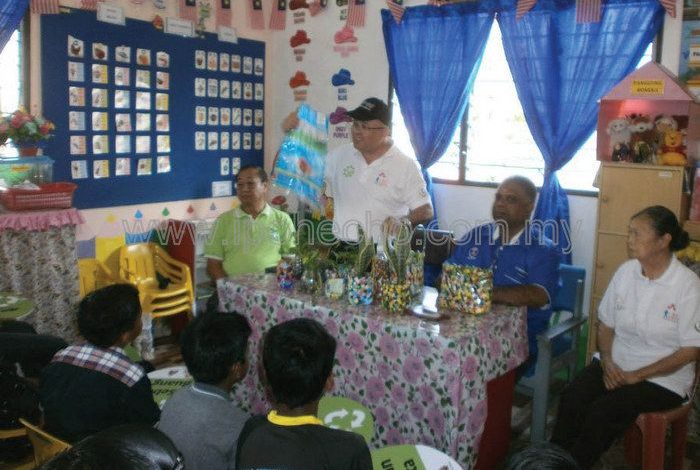iSpeak: Trash to Cash


By A. Jeyaraj
Ipoh Echo is championing the cause for the reduction of plastic usage. Likewise, many other organisations and people talk about plastic waste but do nothing. One NGO that walks the talk is Ipoh City Watch (ICW).
ICW together with Rukun Tetangga Jelapang launched Trash2Cash Sustainable Recycling System early this year at Rukun Tetangga, Jelapang.
On October 13, President of ICW Dr Richard Ng conducted the first training session on how to convert trash plastic to decorative bags and other items to students and residents in Jelapang.
Dr Richard informed that the campaign Trash2Cash system can help the B40 folks in Jelapang Tambahan to earn supplemental income while keeping the environment clean. The system helps society to embrace recycling through the Social Business concept where the focus is to solve social problems while generating income to sustain the activities.
Dr Richard said that the most suitable plastics to make the products are 10kg rice bags as well as Milo and detergent packaging which are colourful. The plastic is cut into small rectangular pieces of equal size, folded in a specific way and woven into decorative bags, trays, cylindrical containers and other items. ICW pays 3 sen for each folded piece which is called a “lock” or the building block. Dr Richard said students, senior citizens and housewives can earn up to RM100 per month as pocket money. The “locks” are like Lego blocks and an individual can use his/her imagination to make whatever product they want.
The cylindrical containers made are mainly used to grow plants. The baskets can double as fruit baskets to be given to VIPs when they officiate functions. Women can use the handbag for daily use.


Dr Richard said that ICW sells the products during car-free days and at other exhibitions. He said he charges according to the individual item.
Meanwhile, S. Thinakaran, Chairman, RT Jelapang, said that for the past four years, in collaboration with ICW, he and his committee members have been going to houses in Jelapang once a month to collect recyclables from their houses. The residents get paid for the items given.
On Sunday October 13, I accompanied the members during their collection. At the first house, we collected more than 60kg of items consisting of paper, plastic, tins, bottles and other recyclables. Mdm Wong Ah Moi, head of the household did not accept the money and donated it to RT. She said the items were collected over a period of about four months. Neighbours brought their stuff. I realised that the residents were not keen on the money but kept track of the day their recyclables will be collected. Thina informed that they can collect up to 300kg per month.
The system is based on a sharing concept where recycling members get paid for their recyclables based on the market rate. The recyclables are sold to an appointed recycler, who will pay a higher rate. The lorry driver and RT get paid. ICW retains a small percentage to carry out its activities. Thus everyone involved in the system will get paid based on the amount of recyclables contributed by members and results in a sustainable recycling system. In this business model, everyone gets a share of the profit.
Thina added that for the system to be successful, all participants must play their roles in segregating their garbage into three main categories of recyclables: mainly plastics, papers and metal and ensure only clean recyclables are brought in. The residents complied with the requirement.
I asked Thina how he could get so many students to participate in the scheme because other NGOs have difficulty in getting teenagers to get involved in their activities. He said that his RT has its own football field and the students are members of the football team. This is one of the ways to keep students away from social problems.
ICW is carrying out the project with its own resources. The Perak State Government which is considering banning of plastic must provide funding for ICW so that it can expand its services. Dr Richard said with funding he can buy machinery and turn this into a cottage industry and cover larger areas. This can reduce the garbage problem in Ipoh. For their part, corporations can buy products from ICW as part of their CSR programme and present them as souvenirs to their customers and take away the burden of marketing from ICW.
Ipoh can be the focal point of a new industry.
Readers who want further information can email richng8888@gmail.com or Whatsapp 013 533 0989.


